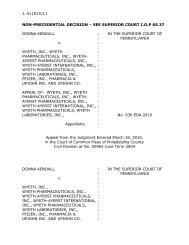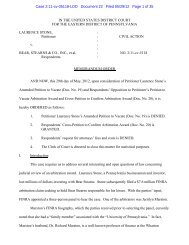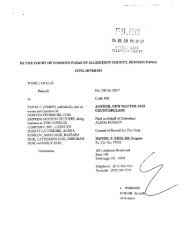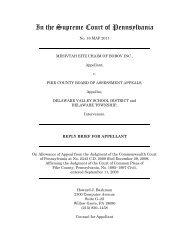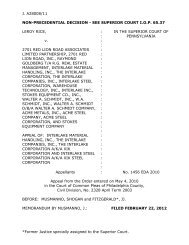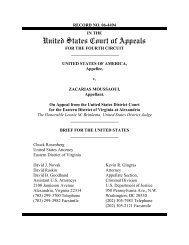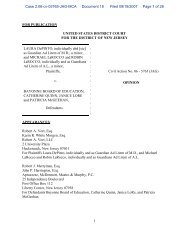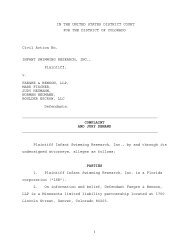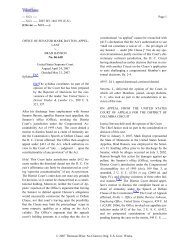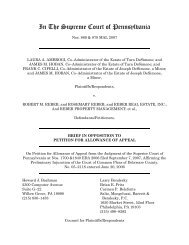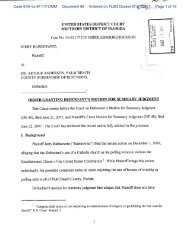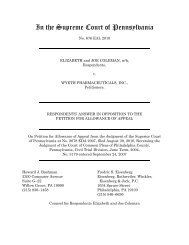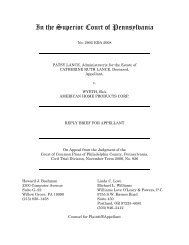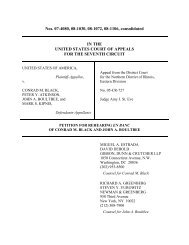Spiering v. Heineman - How Appealing - Law.com
Spiering v. Heineman - How Appealing - Law.com
Spiering v. Heineman - How Appealing - Law.com
Create successful ePaper yourself
Turn your PDF publications into a flip-book with our unique Google optimized e-Paper software.
Case: 4:04-cv-03385-RGK-DLP Document #: 90 Date Filed: 09/12/2006 Page 18 of 23<br />
conjunction with other constitutional protections, such as . . . the right of parents,<br />
acknowledged in Pierce v. Society of Sisters, 268 U.S. 510 (1925), to direct the<br />
education of their children, see Wisconsin v. Yoder, 406 U.S. 205 (1972)<br />
(invalidating <strong>com</strong>pulsory school-attendance laws as applied to Amish parents who<br />
refused on religious grounds to send their children to school.)”). Since that is not the<br />
case here, the “hybrid rights” justification for strict scrutiny does not apply as a<br />
categorical matter.<br />
The second reason for rejecting the “hybrid” rights claim to strict scrutiny is<br />
more <strong>com</strong>plex. It is also more <strong>com</strong>pelling.<br />
It is true that the Due Process Clause of the Fourteenth Amendment protects<br />
the “fundamental right” of parents to make decisions as to the care, custody and<br />
control of their children. See, e.g., Troxel v. Granville, 530 U.S. 57, 65-66 (2000)<br />
(striking down a statute that authorized a court to grant any person the right to visit<br />
a child if such visitation was in the best interests of a child even if a fit parent thought<br />
otherwise). But it is equally true that “a state is not without constitutional control<br />
over parental discretion in dealing with children when their physical or mental health<br />
is jeopardized.” Parham v. J. R., 442 U.S. 584, 603 (1979) (even where parents agree<br />
to mental health <strong>com</strong>mitment, children are entitled to the decision of a neutral fact<br />
finder to determine whether statutory requirements for admission are satisfied)<br />
(emphasis added). And this “constitutional control over parental discretion” when<br />
a child’s safety is at issue exists for Nebraska and every other state, even where<br />
religious and parental rights are asserted in tandem. Prince v. Massachusetts, 321<br />
U.S. 158, 166-167 (1944) (upholding child labor laws applied to custodian of a child<br />
who allowed minor to distribute religious literature; the “right to practice religion<br />
freely does not include liberty to expose [a] . . . child . . . to ill health or death.”)<br />
(emphasis added).<br />
-18



